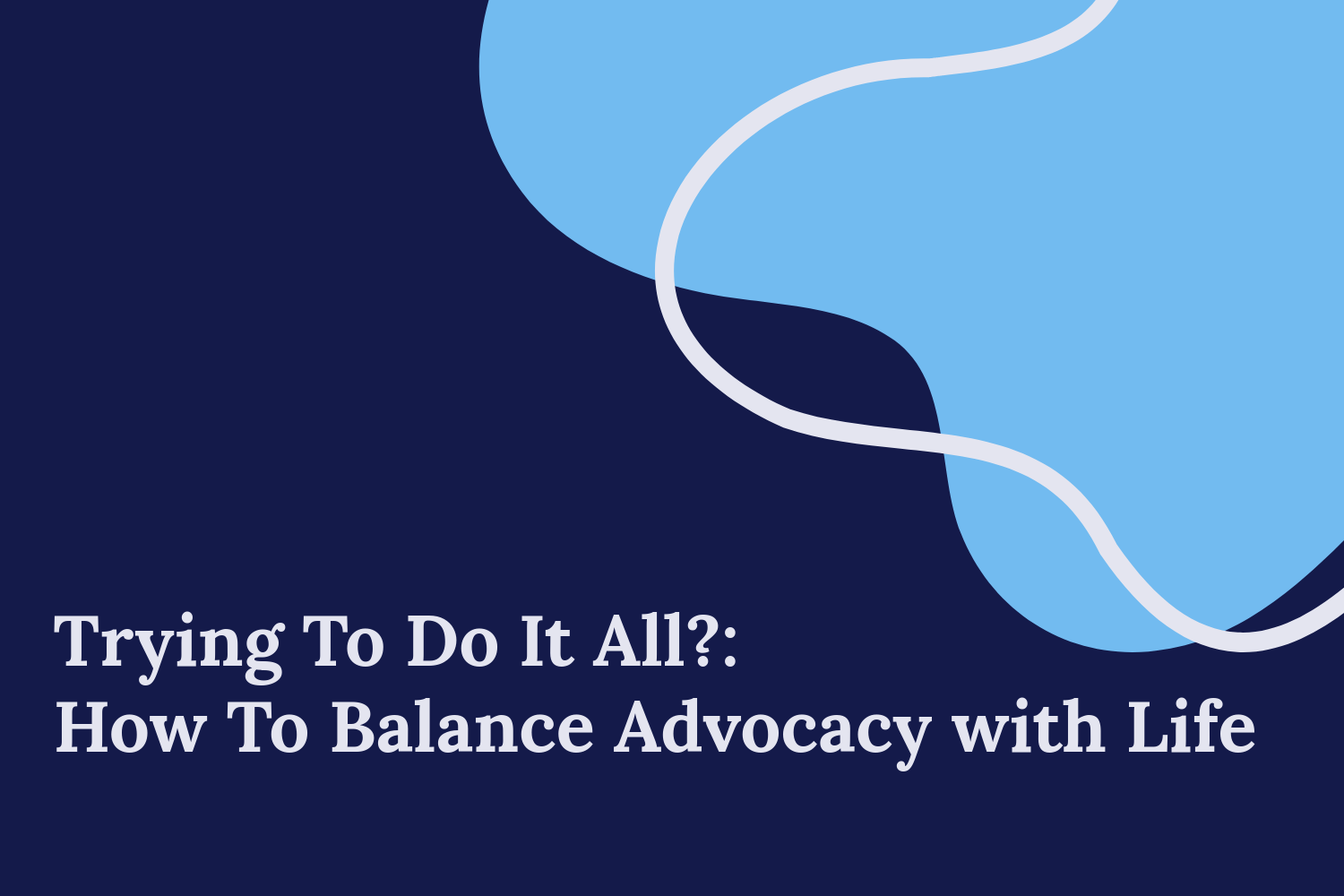We all have lives that require meeting our needs for living in our society. So it is not uncommon to be in a situation where your life needs more attention but you still want to help and create change. As a deaf and disabled advocate, this happens often as flare-ups and sensory overload requires me to recover. That doesn’t even include what everyone has in life with family, relationships, work, health/fitness, and personal life goals.
You want to start or continue to contribute to societal change but life is either really busy or something happened in your life that requires your attention. Consider the lessons and advice that I learned along the way that can help with balancing advocacy and activism into your life.
Recognize that there are going to be different levels of effort at different parts of life. We cannot advocate for others if our physical and mental well-being is low. If burnout is here (or coming), health challenges, and/or survival needs like housing, food, and healthcare are lacking, it is important to recognize that you are human and have needs. Advocacy is usually a journey and taking a step back is okay.
Know your priorities. We all have different priorities at different stages of life which can include advocacy work. However, they need to be looked at and consistently reevaluated to make sure you are doing what is right for you. It will also help you figure out when and if advocacy work can be part of your schedule at this time.
If possible, combine goals and efforts to streamline work. There are many examples of this like joining clubs at school to boost your resume and do the work you care about or having opportunities for advocacy as part of your job. It does not apply to everyone but it is an approach that exists if you have the opportunity and ability to do it.
Look for gaps of time and schedule in your work. We sometimes are not aware of how much time we have as we live day to day. Evaluating your time to see where it can fit in based on priorities that you have listed can provide opportunities to contribute.
Action does not have to be a massive project with a huge commitment. As much as we aspire to be the activists and advocates that do these big projects and have a long list of roles to state their expertise, it does not fit with everyone’s life. It can be as simple as donations, volunteering at a local organization, and having a conversation with people about the issues you care about and want to spark change. In many ways, a small sustainable step is more impactful than a massive project that may be completed.

